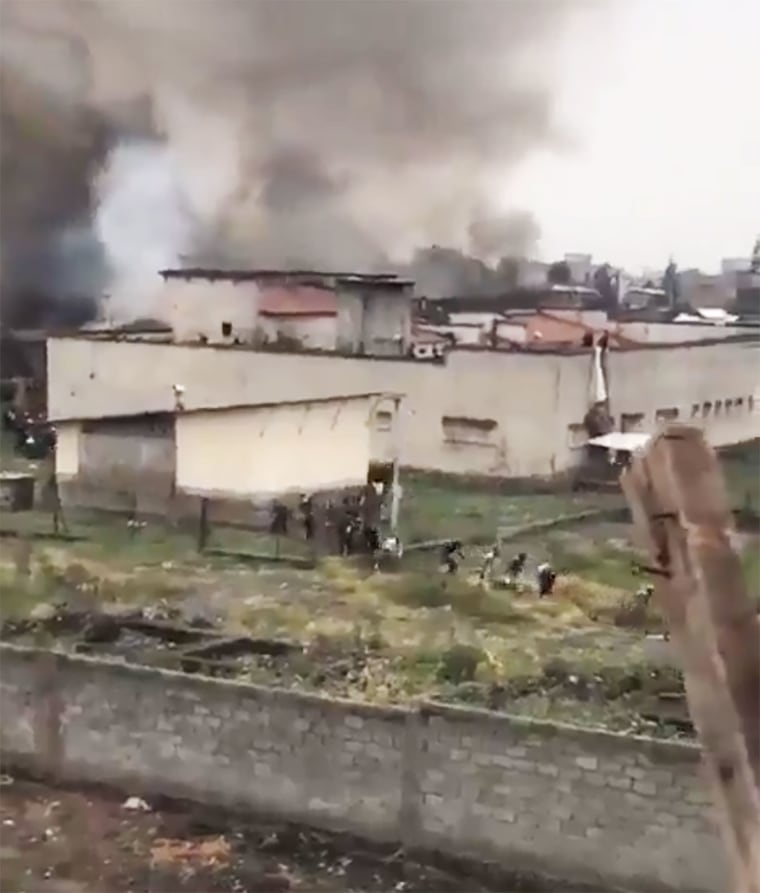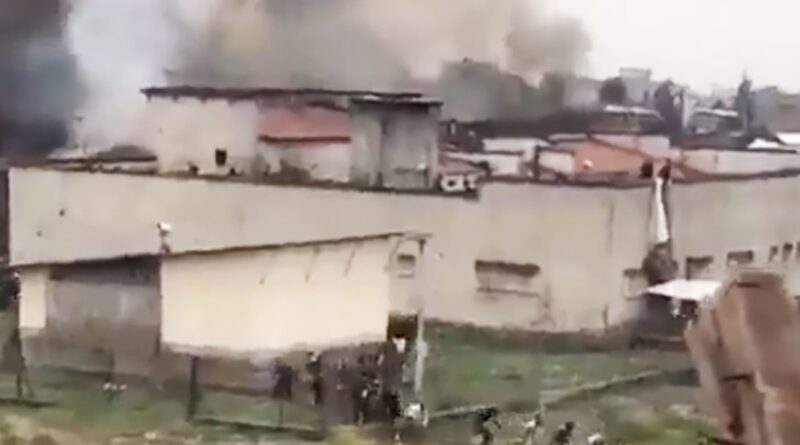Over 150 women raped during Congo prison break, U.N. says
At least 165 women were raped by male inmates after a mass breakout from a prison in the Democratic Republic of Congo, the United Nations said, citing officials in the central African nation.
After fighters from the M23 rebel group advanced towards the eastern city of Goma the U.N. said inmates at the Muzenze prison took advantage of the chaos and started to escape from the facility on Jan. 27.
In a video posted to X and verified by NBC News, hundreds of people can be seen escaping from the prison as plumes of black smoke billow nearby and what sounds like gunshots ring out.
“DRC officials report that at least 165 women were raped by male inmates during the mass prison break,” the United Nations said in a report four days later.

Vivian Van de Perre, the United Nations’ representative for the DRC, said in a briefing from Goma on Wednesday that the situation was “still highly volatile” in the city, which is home to around 2 million people.
Many residents were fleeing the city because “the conditions are really, really dire … and we are actually afraid of health outbreaks in our camps, for the people that we are sheltering, but also for ourselves,” she said.
She added that the U.N. had been “unable to verify firsthand all the numbers and exactly what transpired” at the prison due to the situation in Goma.
Her comments came as farther south, Rwandan-backed M23 rebels moved into mining town of Nyabibwe, in an apparent violation of a unilateral ceasefire the group announced on Monday.
The capture of Nyabibwe takes the rebels a step closer to the provincial capital, Bukavu, some 40 miles south, a city the rebels said last week they had no intention of capturing.
Congo accuses Rwanda of using the M23 to pillage valuable mineral deposits. Rwanda says it is acting in self-defense and to protect ethnic Tutsis.
M23’s capture of Goma last week displaced hundreds of thousands of people and fanned fears of a wider regional war.
On Friday, the U.N.’s Human Rights Office (OHCHR) warned that the escalation could lead to the increased use of sexual violence as a weapon of war by rival armed groups, which has long fueled the conflict in eastern Congo.
Reports that 52 women were raped by Congolese troops in South Kivu, including alleged reports of gang rape, were verified by the OHCHR on Friday.
The DRC’s government launched an action plan to combat sexual violence by members of the military in 2014, but a report by the U.N. five years later found that perpetrators of sexual violence could still act with impunity.
Last year, Doctors Without Borders, the aid group also known as Medecins Sans Frontieres, reported that it had treated over 25,000 survivors of sexual violence across the DRC in 2023 — the highest number it had ever recorded in the country.





